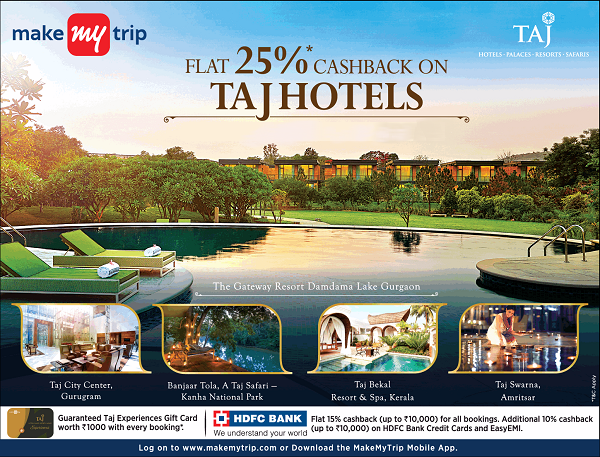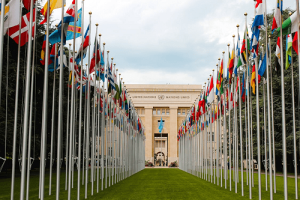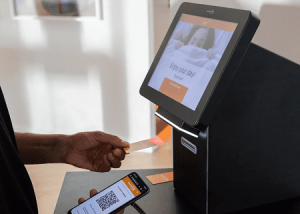Advertising- Hotel advertising is a specific subset of advertising that focuses on promoting hotels, resorts, lodges, or other accommodations to potential guests. It’s a crucial aspect of the hospitality industry to attract guests, increase occupancy rates, and build brand recognition. Here are some key points to consider when it comes to hotel advertising:
- Target Audience: Identify your target audience based on factors such as demographics, interests, travel habits, and preferences. Are you targeting business travelers, families, couples, or tourists?
- Channels of Advertising:
- Online: Utilize your hotel’s website, social media platforms, online travel agencies (OTAs), and search engines to promote your property. Online advertising includes display ads, search engine marketing, and social media ads.
- Print: Traditional methods like brochures, flyers, and newspaper ads can still be effective, especially in local markets.
- Broadcast: Television and radio ads can be effective for reaching broader audiences, especially if your hotel targets a wide range of guests.
- Email Marketing: Send out newsletters and promotional emails to potential and past guests to keep them informed about special offers, events, and updates.
- Influencer Collaborations: Partnering with travel influencers or bloggers can help showcase your hotel to their followers.
- Visual Content: High-quality photos and videos of your hotel’s rooms, facilities, amenities, and nearby attractions are essential for showcasing what you offer.
- Unique Selling Points (USPs): Highlight what makes your hotel special. Whether it’s luxury accommodations, scenic views, top-notch amenities, or a central location, emphasize what sets your property apart.
- Promotions and Packages: Create attractive deals, packages, and promotions to entice potential guests. This could include discounts, complimentary services, or bundled experiences.
- Online Reviews and Ratings: Positive guest reviews and ratings can significantly impact your hotel’s reputation. Encourage satisfied guests to leave reviews and address any negative feedback professionally.
- Geo-Targeting: Use location-based targeting in digital advertising to reach potential guests who are searching for accommodations in your area.
- Consistent Branding: Maintain consistent branding across all your advertising channels to create a recognizable and cohesive image of your hotel.
- Call to Action (CTA): Include clear and compelling CTAs in your advertisements, directing potential guests to make reservations, visit your website, or contact your hotel.
- Data Analysis: Continuously monitor and analyze the performance of your advertising efforts to understand what’s working and where adjustments are needed.
Remember that effective hotel advertising goes beyond simply showcasing rooms; it should convey an experience, an atmosphere, and the value that guests will receive during their stay.
What is Advertising
Hotel advertising refers to the various marketing strategies and techniques used by hotels, resorts, and other lodging establishments to promote their services, attract potential guests, and increase occupancy rates. It involves creating and disseminating messages through different channels to reach a target audience and encourage them to choose a specific hotel for their accommodations. Hotel advertising aims to showcase the unique features, amenities, and experiences that a hotel offers to make it appealing to travelers.
Hotel advertising can take many forms, including:
- Print Advertising: This includes advertisements in newspapers, magazines, brochures, and other printed materials that highlight the hotel’s offerings, facilities, and special promotions.
- Online Advertising: Leveraging digital platforms such as the hotel’s website, social media, search engines, and online travel agencies (OTAs) to reach a wider audience. This can include banner ads, sponsored posts, and pay-per-click campaigns.
- Social Media Advertising: Using platforms like Facebook, Instagram, Twitter, and LinkedIn to create engaging content, share photos and videos of the hotel, and interact with potential guests.
- Search Engine Marketing (SEM): Running paid search ads on platforms like Google Ads to ensure the hotel’s website appears at the top of search results when users search for relevant keywords.
- Email Marketing: Sending promotional emails, newsletters, and updates to past guests and subscribers to keep them informed about special offers and events.
- Video Marketing: Creating videos that showcase the hotel’s rooms, amenities, dining options, and nearby attractions to provide a visual experience for potential guests.
- Influencer Collaborations: Partnering with travel influencers, bloggers, and content creators to showcase the hotel through their social media channels and blogs.
- Outdoor Advertising: Using billboards, banners, and signage in strategic locations to capture the attention of travelers and locals.
- Events and Promotions: Organizing events, workshops, or themed promotions that attract guests and create memorable experiences.
- Direct Mail: Sending physical promotional materials, such as postcards or catalogs, to targeted audiences.
- Radio and Television Advertising: Running ads on local or national radio and TV stations to reach a broader audience.
Effective hotel advertising not only highlights the physical attributes of the property but also conveys the overall experience that guests can expect during their stay. This includes emphasizing factors such as exceptional customer service, convenient location, comfortable accommodations, exceptional dining options, and any special amenities or services that set the hotel apart from competitors. The goal is to create a compelling narrative that resonates with the target audience and encourages them to choose the hotel for their travel needs.
Where is Advertising

Hotel advertising can be found in various places, both online and offline, where potential guests are likely to come across promotional materials and messages about hotels and accommodations. Here are some common locations where you might encounter hotel advertising:
- Online Travel Agencies (OTAs): Websites and apps like Expedia, Booking.com, and TripAdvisor often feature hotel advertisements alongside search results, allowing travelers to compare prices, read reviews, and make reservations.
- Hotel Websites: Most hotels have their own websites where they showcase their accommodations, amenities, services, and special offers. These websites often include dedicated sections for promotions and booking information.
- Social Media Platforms: Hotels use social media platforms such as Facebook, Instagram, Twitter, and LinkedIn to share photos, videos, and posts about their properties, events, and promotions.
- Search Engines: When travelers search for accommodations using search engines like Google, they might see paid ads for hotels at the top of the search results.
- Travel Blogs and Influencer Content: Travel bloggers and influencers often create content about their hotel stays, sharing their experiences and recommendations. Hotels may collaborate with these influencers for sponsored content.
- Online Display Ads: These ads can appear on various websites, including news sites, travel blogs, and entertainment portals, targeting users who have shown interest in travel-related topics.
- Email Marketing: Hotels often send promotional emails to subscribers, past guests, and potential customers, showcasing special offers, packages, and updates.
- Print Magazines and Newspapers: Magazines focused on travel and lifestyle often feature hotel advertisements. Similarly, local newspapers might carry ads for hotels in their travel or lifestyle sections.
- Billboards and Outdoor Signage: In areas with high tourist traffic, hotels might use billboards and outdoor signage to attract attention and direct travelers to their properties.
- Radio and Television: Hotels may run advertisements on local radio stations or regional TV channels to reach a broad audience.
- Event Sponsorship: Hotels may sponsor or participate in local events, trade shows, and travel expos to showcase their offerings and attract potential guests.
- Travel Agencies and Brochures: Travel agencies often have brochures and promotional materials from various hotels, making them available to clients who are seeking accommodations.
- Local Directories: In tourist-heavy areas, you might find hotel advertisements in local directories, maps, and tourist guides.
- Online Reviews and Aggregators: Review platforms like Yelp and Google Maps also serve as places where travelers can see information about hotels, including user-generated photos and reviews.
Remember that the specific locations where you encounter hotel advertising can vary based on your location, travel habits, and the platforms you use for information and bookings.
Application of Advertising
Hotel advertising is applied across various channels and strategies to promote hotels, increase occupancy rates, and create a strong brand presence. Here are some specific applications of hotel advertising:
- Online Advertising:
- Search Engine Marketing (SEM): Hotels use pay-per-click (PPC) ads on search engines to appear at the top of search results when users look for accommodations in a specific location.
- Social Media Advertising: Hotels run targeted ads on platforms like Facebook and Instagram to showcase their amenities, special offers, and events to users who match their target demographics.
- Website Promotion:
- Hotel Website: Hotels create visually appealing websites that highlight their rooms, facilities, dining options, and booking information. They use search engine optimization (SEO) techniques to ensure their website ranks well in search results.
- Email Marketing:
- Promotional Emails: Hotels send out regular newsletters and promotional emails to their subscribers, featuring exclusive deals, upcoming events, and other relevant information.
- Visual Content:
- Photography and Videos: Hotels use high-quality photos and videos to showcase their rooms, amenities, pools, restaurants, and nearby attractions on their website and social media platforms.
- Review Platforms:
- Online Reviews: Positive reviews on platforms like TripAdvisor and Google My Business serve as a form of indirect advertising, as satisfied guests share their positive experiences.
- Local Advertising:
- Billboards and Signage: Hotels in tourist areas use billboards, banners, and outdoor signs to attract the attention of travelers and passersby.
- Brochures and Local Directories: Hotels distribute brochures and promotional materials through local travel agencies, visitor centers, and tourist guides.
- Special Promotions:
- Seasonal Offers: Hotels create special promotions and packages for holidays, seasons, and events to entice travelers to choose their accommodations.
- Influencer Collaborations:
- Travel Bloggers and Influencers: Hotels collaborate with influencers to create content showcasing their property, which is shared with the influencer’s followers.
- Event Hosting:
- Weddings and Events: Hotels promote their event hosting capabilities to attract couples planning weddings, corporate events, and conferences.
- Engagement on Social Media:
- User-Generated Content: Hotels encourage guests to share their experiences on social media using a specific hashtag, effectively generating free advertising.
- Search Engine Optimization (SEO):
- Website Optimization: Hotels use SEO techniques to ensure their website ranks well in search results for relevant keywords.
- Remarketing:
- Retargeting Ads: Hotels use retargeting strategies to show ads to users who have previously visited their website, encouraging them to return and make a booking.
- Mobile Apps:
- Hotel Apps: Some hotels develop mobile apps that allow guests to easily book rooms, access information about amenities, and receive notifications about special offers.
The application of hotel advertising is highly diverse and tailored to the specific goals, target audience, and unique offerings of each hotel. Successful hotel advertising strategies consider the digital landscape, emerging trends, and the preferences of modern travelers.
Case Study on Advertising
Sunset Haven Resort
Background: Sunset Haven Resort is a high-end beachfront property located in a popular tourist destination. The resort offers luxurious accommodations, stunning ocean views, a spa, gourmet dining options, and various recreational activities. The marketing team aims to increase bookings during the upcoming summer season by effectively utilizing hotel advertising strategies.
Advertising Strategies:
- Social Media Advertising:
- The resort runs targeted Facebook and Instagram ads showcasing its upscale amenities, serene beachfront location, and summer-specific packages.
- Eye-catching visuals and videos of guests enjoying the beach, spa treatments, and culinary experiences are featured to create an aspirational image.
- Influencer Collaborations:
- Sunset Haven Resort partners with travel influencers who align with its luxury brand. These influencers share their experiences through social media posts, blog articles, and YouTube videos.
- The influencers’ content highlights the resort’s unique features, including private beach cabanas, exclusive spa treatments, and gourmet sunset dinners.
- Email Marketing:
- The resort sends out a series of personalized emails to its past guests, promoting early-bird summer offers and loyalty rewards for returning visitors.
- The emails contain stunning visuals and emphasize the benefits of booking directly on the resort’s website.
- Search Engine Marketing (SEM):
- The resort runs Google Ads campaigns targeting keywords like “luxury beach resort,” “oceanfront accommodations,” and “summer vacation deals.”
- Ad copy highlights the resort’s premium services, exclusive beach access, and limited-time discounts.
- Website Optimization:
- The resort’s website is optimized for search engines and user experience, ensuring easy navigation, fast loading times, and mobile responsiveness.
- Landing pages are created for specific summer packages, making it convenient for users to explore and book.
- Video Marketing:
- Sunset Haven Resort produces professionally shot videos showcasing the resort’s stunning landscapes, elegant suites, spa treatments, and water sports activities.
- These videos are shared on the resort’s website, social media channels, and YouTube.
Results:
- The resort’s social media advertising campaign led to a 30% increase in engagement, with a significant rise in website traffic and direct bookings.
- Collaborations with influencers generated user-generated content and expanded the resort’s reach to a broader audience.
- The email marketing campaign saw a 20% increase in repeat bookings from previous guests, attributed to the loyalty rewards and personalized offers.
- SEM efforts resulted in a 25% increase in website clicks and a higher conversion rate for summer bookings.
- The optimized website, coupled with user-friendly booking interfaces, contributed to a 15% increase in online reservations.
- Video content received positive feedback from viewers, enhancing the resort’s online presence and influencing potential guests’ decisions.
By strategically implementing a combination of digital marketing techniques, Sunset Haven Resort successfully attracted more guests to experience its luxury offerings during the summer season. This case study demonstrates the importance of tailoring advertising strategies to a hotel’s unique features and target audience while leveraging various online platforms and content types.
White paper on Advertising
Title: Hotel Advertising Strategies for Modern Hospitality Industry
Abstract: In the rapidly evolving landscape of the hospitality industry, effective hotel advertising strategies play a crucial role in attracting guests, enhancing brand recognition, and boosting revenue. This white paper delves into the intricacies of hotel advertising, providing insights into various strategies, emerging trends, and best practices that hoteliers can employ to stay ahead in the competitive market. From online platforms to influencer collaborations, this paper explores a comprehensive range of approaches that cater to the preferences and behaviors of today’s travelers.
Table of Contents:
- Introduction
- The Evolution of Hotel Advertising
- Importance of Effective Advertising in the Hospitality Industry
- Understanding the Modern Traveler
- Shifts in Consumer Behavior and Expectations
- The Role of Technology in Travel Decision-Making
- Key Elements of Successful Hotel Advertising
- Target Audience Identification and Segmentation
- Crafting Compelling Value Propositions
- Leveraging Unique Selling Points (USPs)
- Digital Advertising Strategies
- Search Engine Marketing (SEM) and Pay-Per-Click (PPC) Advertising
- Social Media Advertising and Influencer Collaborations
- Content Marketing and Blogging
- Email Marketing for Personalization and Engagement
- Visual Content and Multimedia Marketing
- Utilizing High-Quality Photos and Videos
- Video Marketing and Virtual Tours
- User-Generated Content and Guest Reviews
- Local and Offline Advertising
- Billboards, Signage, and Outdoor Displays
- Print Advertising in Magazines and Newspapers
- Partnerships with Local Businesses and Events
- Emerging Trends in Hotel Advertising
- Voice Search Optimization
- Augmented Reality (AR) and Virtual Reality (VR) Experiences
- Chatbots and AI-Powered Customer Service
- Measuring and Evaluating Advertising ROI
- Key Performance Indicators (KPIs) for Hotel Advertising
- Analyzing Conversion Rates and Customer Engagement
- Building a Cohesive Brand Image
- Consistent Branding Across Advertising Channels
- Creating a Memorable Guest Experience
- Ethical Considerations in Hotel Advertising
- Transparency and Honesty in Promotions
- Respecting Guest Privacy and Data Security
- Case Studies
- Showcase of Successful Hotel Advertising Campaigns
- Conclusion
- Recap of Effective Hotel Advertising Strategies
- The Future of Hotel Advertising in a Dynamic Industry
Conclusion: As the hospitality industry continues to evolve, effective hotel advertising remains a pivotal aspect of attracting guests and fostering loyalty. From harnessing the power of digital platforms to embracing innovative technologies, hoteliers have an array of strategies at their disposal to captivate the modern traveler’s attention. By tailoring advertising efforts to align with the unique features of their properties and the preferences of their target audience, hotels can create compelling narratives that resonate and inspire action. This white paper serves as a comprehensive guide for hoteliers seeking to navigate the multifaceted landscape of hotel advertising and secure their position as industry leaders.






